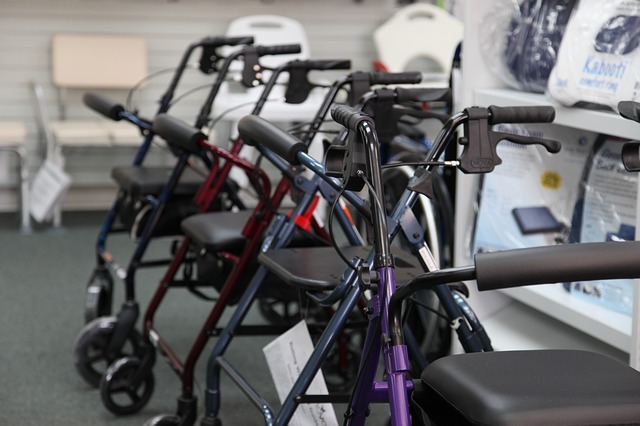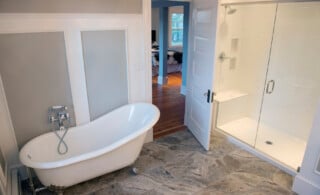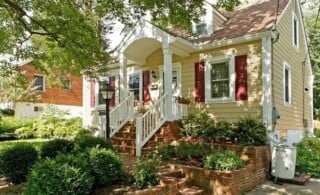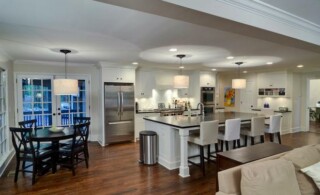
Elderly nursing homes are often regarded as depressing places, but they don’t have to be. In fact, if a nursing home that you’re considering depresses you, look somewhere else! The facility you select should provide competent, compassionate care for your loved one, and should find ways to engage them and to help them function at their fullest capacity.
The most important piece of advice to finding the best elderly nursing home is to visit. You’ll want to conduct more than one visit to any leading candidates, at different times of the day, and may even want to drop in unannounced one time. Here is a checklist of elements to look for in your visits:
Care
- Level of Care: Does the facility offer the type of care that your loved one needs (i.e. dementia or intensive personal care)? Are most of the other residents at the same level of health as your loved one? (A mentally sharp individual might be disturbed if many of the other patients are in the last stages of dementia.)
- Patient-to-Staff Ratio: Elderly nursing homes are required to have at least one registered nurse on duty at all times. There should be at least 1 staff member to every 4 patients in a dementia ward or for high-need patients; 1:8 is a fine ratio otherwise, and night ratios can be even lower.
- Medications: How does the facility ensure that patients receive their medications on time and actually take them? How are patients monitored to see if a medication change is needed?
- Individual Plans: Make sure the facility arranges an individual plan of care in a meeting that includes the resident and family members, if applicable. Ask how often these plans are revisited and how they are enacted.
Atmosphere
- Staff: Are they cordial and professional? Do they greet residents by name? Do they seem to enjoy their job?
- Residents: Are they well dressed and groomed? What are their impressions of the facility? What are their complaints? What’s the last social activity they participated in?
- Cleanliness: How neat are the grounds, common areas, kitchen/dining room, bathrooms, hallways, and resident spaces? Are there any offending odors?
- Décor/Floor plan: Is the outside of the building well-kept? How updated are the furniture and fixtures? Are rooms and common areas decorated in a pleasant way, and do you see residents’ personal touches? How much natural light is available? Is the floor plan conducive to resident gathering?
Services
- Meals: Try to schedule your visit to coincide with a mealtime. Does the food appear nutritious, well-balanced, and appetizing? Ask to see a monthly menu. How are residents’ dietary needs taken into account? Are residents able to dine in their rooms? Is tray service available in case of an illness? What about healthy snacks? Is water readily available outside of mealtimes?
- Social Events: Get a recent calendar of scheduled activities and ask how the facility encourages residents to participate.
- Exercise: Is an exercise program in place that promotes stretching and a range of motions? Are the grounds conducive for walking (with or without a wheelchair)?
- Extras: Find out what services aren’t covered in the basic rate. Examples might include transportation and laundry. What are your options if you decide not to use the facility’s service?
Safety
- Care: How are night needs handled? Have staff members been trained in abuse prevention? How are difficult residents handled?
- Security: How are outside visitors handled? How are residents’ whereabouts tracked? Is there an alarm system?
- In Case of Emergency: Do all rooms (including bathrooms) have an intercom to reach assistance? Are there smoke alarms in all rooms? Is there a sprinkler system?
- Senior Care Concerns: Is the facility handicapped-equipped? Are there handrails in hallways? Are bathrooms properly equipped (no-slip mats and grab bars in bath, grab bar by toilet, etc.)? Is the floor plan conducive to resident safety (i.e. are stairs or slick floor surfaces present)? Does the elderly nursing home have adequate heating and cooling systems?
Rooming
- Roommates: Many elderly nursing homes feature shared rooms. Find out how roommates are assigned. Will you be able to meet a prospective roommate beforehand? How are roommate disputes handled?
- Personalization: What personal items can a resident bring? Is furniture or bedding allowed?
- Security: How is the loss/theft of a resident’s belongings safeguarded against?
- Independence: What parts of the day are under resident control? Can they decide when to rise, bathe, go to bed, etc.? What are the alternatives to scheduled activities? Is there a privacy curtain in the case of a shared room? What’s the policy on restraints?
 Home Adaptations for Your Needs
Home Adaptations for Your Needs  Modern Design Trends & Advice for Aging in Place
Modern Design Trends & Advice for Aging in Place  Preparing Your Business for the Aging-in-Place Boom
Preparing Your Business for the Aging-in-Place Boom  Empty-Nesters, Smart-Home Tech & Their Impact on Home Improvement Trends
Empty-Nesters, Smart-Home Tech & Their Impact on Home Improvement Trends  How to Coordinate Your Assisted Living Home Care
How to Coordinate Your Assisted Living Home Care 

Are You Familiar With This Topic? Share Your Experience.